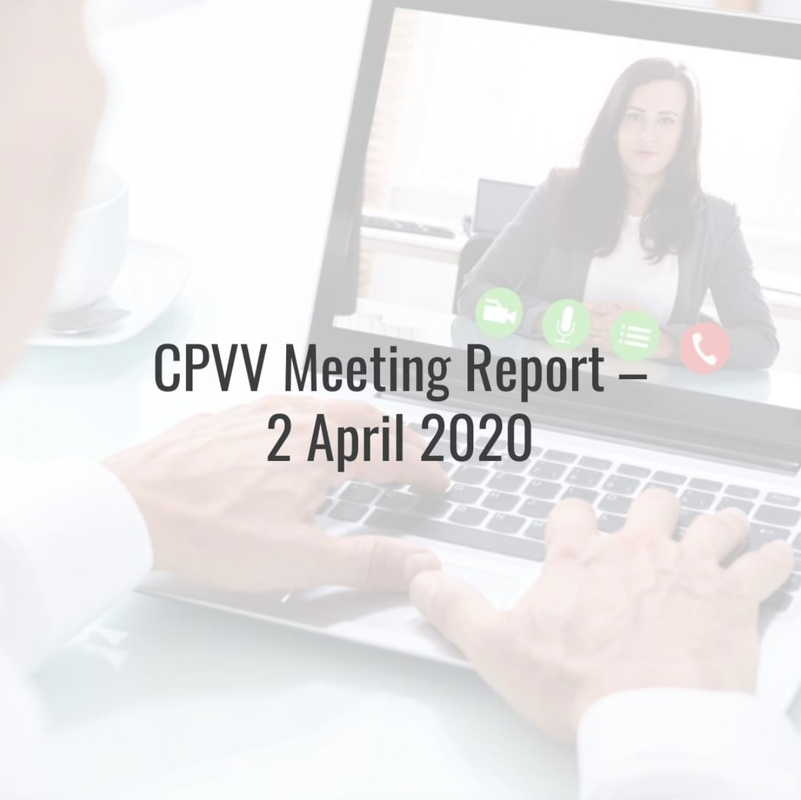Prohibition notices will be issued to protect the larger community. Please report to CPVV anyone within the industry who is infected with COVID-19.
CPVV’s main source of information is the Department of Health and Human Services (DHSS) – which delivers policies, programs and services that support and enhance the health and well-being of all Victorians. With the release of financial and economic packages by the government – CPVV has updated its FAQ page showcasing the government support that is available. It is regularly updating not only its FAQ page but its Facebook and Twitter as well. As promised from the previous meeting, CPVV has supplied information on PPE. The Taskforce has established a supply system for PPE, hand sanitisers and cleaning products; it is a buyback system. The products can be supplied to transport providers with a fee. More information on this will be coming soon. Lastly, CPVV reported that as of April 2020, fare calculation devices must be complaint with tolls. If you can’t update your device, let CPVV know and it will look at your case – and ascertain if there are any signification issues; each request will be evaluated case by case. The questions that were covered during the meeting were: Q: If there was a big outbreak in an area, could CPVs transport people to testing facilities and would CPVV give kits to all cars? A: CPVV is looking at all different scenarios and putting support mechanisms in place so that transportation of infected people can be done safely. Q: How many passengers can travel in a vehicle together? A: 4 people from one family/household can travel in a vehicle together. It is up to the driver how many passengers they take. Q: WAT vehicles are picking up passengers in wheelchairs. Normally WAT drivers are not allowed to refuse a fare, but during COVID-19 do they have the same right as other taxi drivers to refuse the fare? A: If the driver feels that providing the service is a risk to them, then yes. The driver must articulate the reason for refusing the fare as a health and safety issue. CPVV is assisting the driver to make this a safe working environment. Individual safety is critical and the key message is clear communication as to why the fare is being refused. The driver must make sure that the refusal is not because of discrimination - either due to race, disability, etc. Q: What happens if we have to take a taxi off the road because we can’t find any products which guarantee driver and passenger safety? A: There is a link on CPVV’s website that recommends products and gives advice from DHHS: https://cpv.vic.gov.au/drivers/coronavirus-covid-19/coronavirus-covid-19-faqs2. Q: What support is CPV drivers eligible for? A: A lot of information is available on the economic situation now on the CPVV FAQ page: https://cpv.vic.gov.au/drivers/coronavirus-covid-19/coronavirus-covid-19-faqs2. CPVV is in constant communication with other government departments, relaying information, questions and suggestions, so please keep them coming. In the coming weeks, CPVV will be undertaking voluntary surveys from a select few BSPS on figures such as trip numbers. CPVV’s video conferences will be held weekly. BSPs can request to be included in these meetings by answering the survey at https://www.surveygizmo.com/s3/5515934/CPVV-skype-meeting-survey. If you have any feedback at all, please email [email protected].
1 Comment
|
NewsDRIVE NOW reports on various topics regarding the Archives
December 2022
Categories
All
|
DRIVE NOW Magazine is published by Trade Promotions Pty Ltd, Ashwood VIC Australia. © 2022 DRIVE NOW |


 RSS Feed
RSS Feed